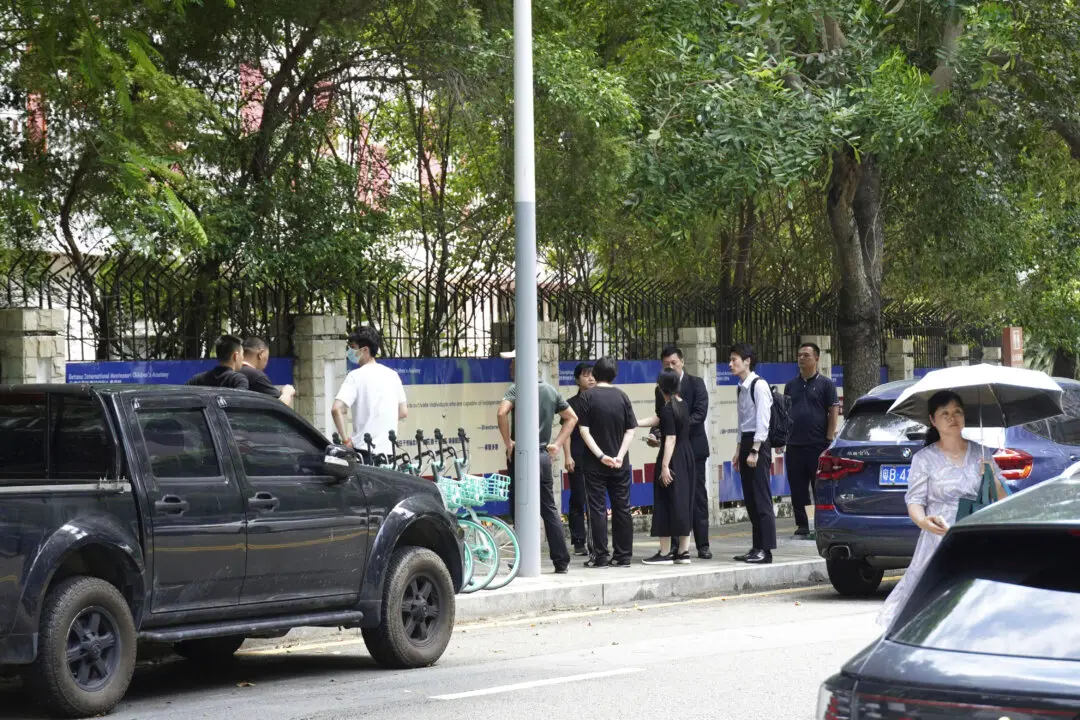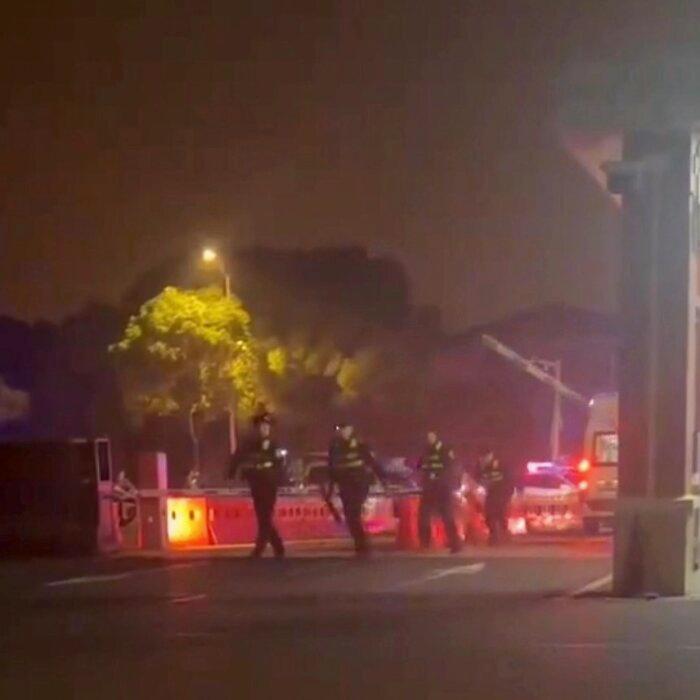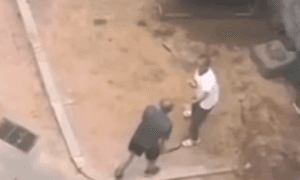Chinese authorities were quick to censor discussion of the incidents on social media and, in briefings with the international press, claimed these were isolated incidents, while using no such term in domestic state-run media.
4 Americans Stabbed
In June, four instructors from Iowa’s Cornell College on a teaching exchange program with Beihua University were stabbed in a public park in China’s northeast Jilin Province. Three of the instructors were U.S. citizens, and one was a noncitizen resident of Iowa.While walking through Beishan Park to visit a temple, the four instructors were attacked by a middle-aged Chinese man. All four were hospitalized for injuries they sustained in the attack.“Do they really think that censoring domestic discussion of the incident impacts whether foreigners choose to visit China or not?” one Weibo user posted.
Japanese Mother and Child Attacked, Good Samaritan Killed
Also in June, a Japanese mother and her child were attacked by a Chinese man with a knife while waiting at a bus stop, and the knife-wielding man killed a good Samaritan who tried to intervene.Chinese authorities said the incident was an “isolated” case when Japanese diplomats pressed for details.
The Japanese Consulate in Shanghai had disclosed at the time that another Japanese national was assaulted in April and suffered neck injuries from a knife attack that occurred just a hundred meters from the location of the June stabbing.
The incidents occurred near a Japanese school in Suzhou, a city just west of Shanghai. Suzhou is home to thousands of Japanese expats, and many Japanese companies in China have their headquarters there.
According to local media reports, when Chinese Vice Premier He Lifeng met with former Japanese lawmaker Yohei Kono on trade the following week, he said the incident must not be allowed to affect China–Japan relations.
Discussions about Chinese nationalistic and anti-Japanese sentiment broke out on Chinese social media after the attack, but was soon censored by platforms.
Japanese Boy Killed
In September, a 10-year-old Japanese boy was stabbed near a Japanese school in southern China and died in the hospital.The attack occurred on the anniversary of a 1931 wartime event known as the 918 Incident, in which a Japanese-owned railway track exploded in the northern Chinese city of Shenyang. The date marks the start of Japan’s invasion of China, which lasted until 1945, near the end of World War II.
A Chinese mother previously told The Epoch Times that in mainland China, students are exposed to “anti-Japanese education” as early as kindergarten. She chose to remain unnamed for fear of retribution.
Japanese Foreign Minister Yoko Kamikawa told reporters that Tokyo had requested to enhance security before the anniversary, and expressed regret that an attack still occurred. Japanese diplomats called on Beijing to do more to ensure the safety of Japanese nationals and transparency in the investigation.
The attacker was identified as a 44-year-old man at the time, and Chinese authorities again said the incident was isolated and had no relation to the earlier attack on a Japanese mother and child in June. Authorities also renewed orders to take down social media posts containing hate speech targeting Japanese nationals.







